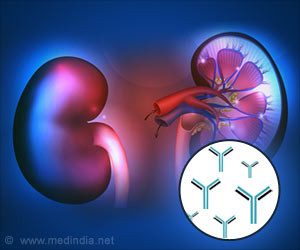A class of proteins that detect painful touch has been identified by The Scripps Research Institute researchers.

The experiments in the new study were conducted in fruit flies, a model system for the sensory nervous system of mammals, where piezo proteins are also expressed, as well as in certain cell types in the ear, kidney, heart, and other tissues. Future studies will focus on the roles of piezo proteins in sensing sound, blood pressure, and related stimuli that press and/or stretch cell membranes.
"Researchers in this field have been trying for decades to identify pressure-transducing ion channel proteins that exist in mammals, and these piezo proteins are exceptionally strong candidates," said Ardem Patapoutian, a professor in the Department of Cell Biology and the Dorris Neuroscience Center at Scripps Research, and a senior investigator for both papers. "We now have solid clues that we can follow up to learn how the mechanotransduction pathway works and how it is disrupted in diseases."
The two papers appear online in Nature on February 19, 2012.
Source-Eurekalert











